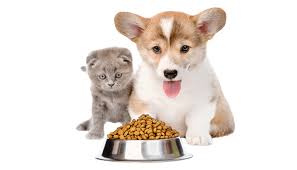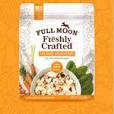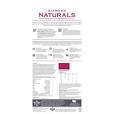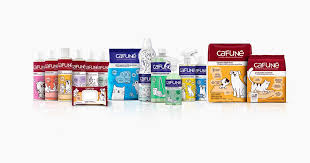The Importance of Choosing the Right Pet Food
Pet food plays a crucial role in the overall health and well-being of our beloved furry companions. Just like humans, pets require a balanced diet to thrive and lead a healthy life. Here are some key points to consider when choosing the right pet food:
Quality Ingredients
Opt for pet foods that contain high-quality ingredients. Look for options that list real meat as the first ingredient and avoid products with artificial additives or fillers.
Nutritional Balance
Ensure that your pet’s food provides a balanced mix of proteins, carbohydrates, fats, vitamins, and minerals. Different pets have varying nutritional needs based on factors like age, size, and activity level.
Avoid Allergens
Be mindful of any food allergies or sensitivities your pet may have. Some common allergens in pet food include wheat, soy, and certain proteins. Consult your veterinarian if you suspect your pet has allergies.
Consult with Your Veterinarian
Your veterinarian is an invaluable resource when it comes to selecting the right pet food for your furry friend. They can provide guidance based on your pet’s specific dietary requirements and health conditions.
Transitioning Gradually
When switching your pet’s food, do so gradually to prevent digestive upset. Mix small amounts of the new food with their current diet over several days until they are fully transitioned to the new food.
Hydration Matters
In addition to quality food, ensure that your pet has access to fresh water at all times. Proper hydration is essential for their overall health and helps support digestion and nutrient absorption.
Remember, choosing the right pet food is an investment in your furry friend’s long-term health and happiness. By selecting high-quality, nutritionally balanced options tailored to their needs, you can help them live their best life by your side.
8 Essential Tips for Choosing the Best Pet Food
- Choose high-quality pet food with real meat as the first ingredient.
- Consider your pet’s age, size, and activity level when selecting the right food.
- Avoid foods with artificial colors, flavors, and preservatives.
- Gradually transition to a new food to prevent digestive issues.
- Provide fresh water for your pet at all times.
- Consult with a veterinarian for dietary recommendations tailored to your pet’s needs.
- Monitor your pet’s weight and adjust their food portions accordingly.
- Store pet food in a cool, dry place to maintain its freshness.
Choose high-quality pet food with real meat as the first ingredient.
When selecting pet food for your furry companion, it is essential to opt for high-quality options that prioritize real meat as the primary ingredient. Real meat provides essential proteins and nutrients that are vital for your pet’s overall health and well-being. By choosing pet food with real meat as the first ingredient, you can ensure that your pet receives the necessary nutrition to thrive and lead a healthy life. Quality ingredients like real meat contribute to a balanced diet that supports your pet’s energy levels, muscle development, and overall vitality.
Consider your pet’s age, size, and activity level when selecting the right food.
When choosing the appropriate pet food for your furry companion, it is essential to take into account factors such as their age, size, and activity level. Young puppies have different nutritional needs than senior dogs, while larger breeds may require specific formulations to support their growth and development. Likewise, a highly active dog will benefit from a diet that provides ample energy and nutrients to sustain their active lifestyle. By considering these aspects when selecting pet food, you can ensure that your pet receives the tailored nutrition they need to thrive and stay healthy throughout their life.
Avoid foods with artificial colors, flavors, and preservatives.
When selecting pet food, it is important to avoid products that contain artificial colors, flavors, and preservatives. These additives offer little to no nutritional value and may even be harmful to your pet’s health in the long run. By opting for natural and wholesome ingredients instead, you can ensure that your furry companion receives a diet that supports their overall well-being and longevity. Prioritizing foods free from artificial additives can contribute to a healthier and happier life for your beloved pet.
Gradually transition to a new food to prevent digestive issues.
When introducing a new food to your pet, it is essential to transition gradually to avoid potential digestive issues. Abrupt changes in diet can upset your pet’s stomach and lead to discomfort. By slowly incorporating small amounts of the new food into their current diet over a period of several days, you can help your pet adjust smoothly and minimize the risk of digestive upset. Patience during this transition period is key to ensuring your pet’s digestive system adapts well to the change, promoting overall wellness and a happy eating experience for your furry companion.
Provide fresh water for your pet at all times.
Ensuring that your pet has access to fresh water at all times is essential for their well-being. Just like humans, pets require proper hydration to support vital bodily functions and maintain good health. By providing a constant supply of clean water, you help your furry companion stay hydrated, aid in digestion, regulate body temperature, and promote overall well-being. Make it a habit to regularly refill their water bowl and keep it clean to encourage them to drink an adequate amount throughout the day.
Consult with a veterinarian for dietary recommendations tailored to your pet’s needs.
Consulting with a veterinarian for dietary recommendations tailored to your pet’s needs is essential for ensuring that your furry companion receives the appropriate nutrition for their health and well-being. Veterinarians have the expertise to assess your pet’s specific requirements based on factors such as age, breed, weight, and any existing health conditions. By seeking professional guidance on pet food choices, you can provide your pet with a diet that supports their overall health and longevity.
Monitor your pet’s weight and adjust their food portions accordingly.
Monitoring your pet’s weight is essential for their overall health and well-being. By keeping a close eye on their weight, you can ensure that they are maintaining a healthy body condition. If you notice fluctuations in weight, it may be necessary to adjust their food portions accordingly. Overfeeding can lead to obesity and related health issues, while underfeeding can result in nutritional deficiencies. Consult with your veterinarian to determine the appropriate portion sizes based on your pet’s age, size, activity level, and specific dietary needs. Regularly monitoring and adjusting your pet’s food portions will help them stay at an optimal weight and lead a happy, healthy life.
Store pet food in a cool, dry place to maintain its freshness.
It is essential to store pet food in a cool, dry place to preserve its freshness and nutritional quality. Exposure to heat, humidity, or sunlight can lead to the degradation of the food’s ingredients and reduce its shelf life. By storing pet food properly, you can ensure that your furry companion receives the full benefits of a fresh and wholesome diet, promoting their overall health and well-being.




